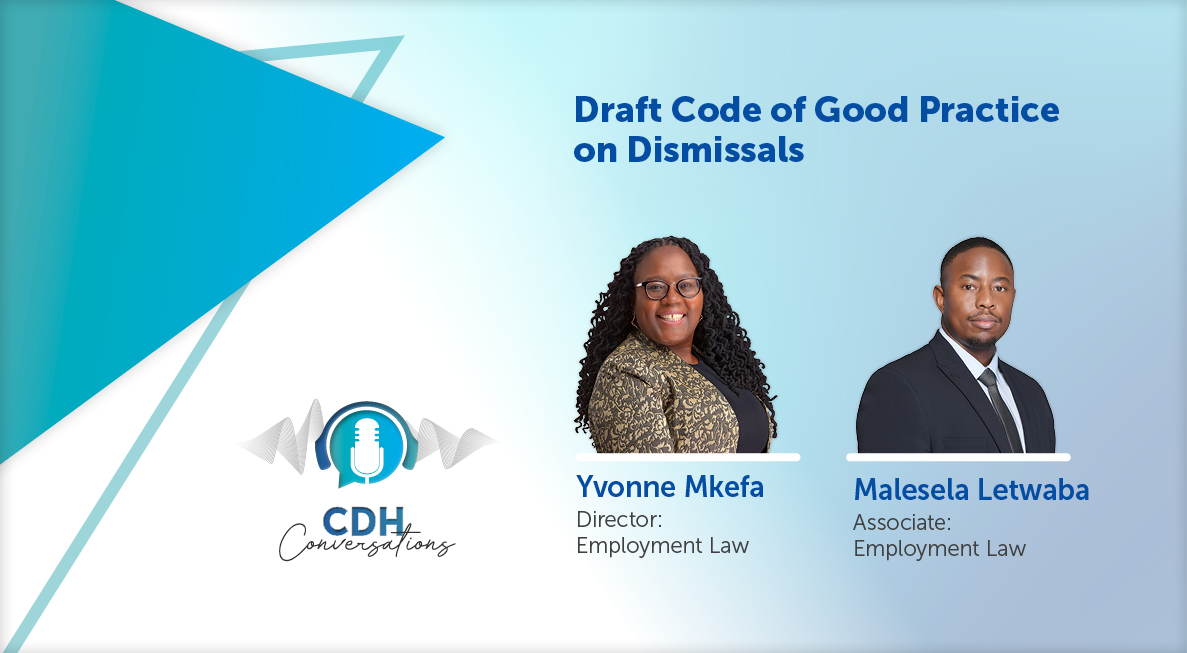Maternity leave: Who’s in and who’s out?
At a glance
- The Van Wyks, supported by Sonke Gender Justice, have filed a High Court application challenging the constitutionality of sections 25 and 26 of the Basic Conditions of Employment Act (BCEA) in South Africa.
- They argue that these sections unfairly discriminate against fathers of newborn children by limiting their rights to paternity leave, and they seek to extend the scope of maternity leave to include parental leave and caregiving leave.
- The case draws on previous judgments that adopted a purposive interpretation of maternity leave, considering the best interests of the child and the recognition of same-sex relationships and surrogacy agreements in the law. The outcome of the case may impact parental and maternity leave in the future.
Werner and Ika van Wyk (supported by Sonke Gender Justice, which is lobbying for the sharing of care in the home) are arguing that they do not and that sections 25 and 26 of the BCEA should be declared unconstitutional insofar as they unfairly discriminate against fathers of newborn children, by unjustifiably limiting their rights to paternity leave in South Africa. They have raised their challenge by way of a High Court application. Sections 25 and 26 of the BCEA provide for maternity leave and the protection of employees before and after the birth of a child. Werner van Wyk applied to his employer for four months of leave to care for his newborn child after his wife returned to operating her two businesses following the birth of their child. The request was declined.
The Van Wyks’ notice filed at the High Court raises the following constitutional issues:
- Whether sections 25 and 26 of the BCEA are unconstitutional insofar as they unfairly discriminate against fathers of newborn children by unjustifiably limiting the father’s rights to paternity leave in South Africa.
- Whether sections 25 and 26 ought to be extended to ensure equal rights of all mothers, fathers and same-sex parents of newborn children in South Africa to:
- include circumstances where a father is the primary caregiver of the newborn child;
- allow for extended paternal and/or parental leave in workplace leave policies;
- extend the definition of “maternity leave” to include “parental” and “caregiving” leave; and
- include the recognition of a new category of “peri-natal leave” for the pregnant, delivering, and breastfeeding parent for a period of six weeks.
- Whether the Minister of Employment and Labour is obliged to amend the legislation to encapsulate circumstances where fathers are the primary caregivers to their newborn children and accordingly – to the extent that workplace policies deviate from this standard – they, themselves, will give rise to unconstitutionality.
Extending the scope of maternity leave
In terms of section 25 of the BCEA an employee is entitled to four months of unpaid maternity leave following the birth of her child. The Van Wyks’ application seeks to extend the scope of maternity leave to include parental leave and caregiving leave. While maternity leave is not expressly defined in the BCEA, the provisions of section 25 relate to pregnancy and birth, and a pregnant employee’s right to maternity leave.
The scope of maternity leave has been challenged before. While the previous challenge was priorto the recent amendments to the BCEA and focused on the employer’s maternity leave policy and not specifically section 25, the judgment offers some useful insight into the approach which our courts have adopted in the past. In the case of Mia v State Information Technology Agency (Pty) Ltd [2015] 7 BLLR 694 (LC) the applicant, who was party to a same-sex civil union and who together with his spouse had entered into a surrogacy agreement, applied for four months of paid maternity leave in terms of his employer’s maternity leave policy. His employer declined the request, stating that only female employees were entitled to maternity leave under the BCEA (at the time the BCEA was silent on the issue of leave for surrogate parents) and its policy. The applicant challenged the refusal arguing that the refusal on the basis that he was not the biological mother of the child constituted unfair discrimination on the grounds of gender, sex, family responsibility and sexual orientation. The Labour Court adopted a purposive interpretation of maternity leave and found that:
“.. the right to maternity leave as created in the Basic Conditions of Employment Act in the current circumstances is an entitlement not linked solely to the welfare and health of the child’s mother but must of necessity be interpreted to and take into account the best interests of the child. Not to do so would ignore the Bill of Rights in the Constitution of the Republic of South Africa and the Children’s Act [including the right of every child to family or parental care].”
The Labour Court considered that at the time the legislation governing civil unions and surrogacy agreements was relatively recent and that our laws’ recognition of same-sex marriages and its regulation of the rights of parents who have entered into a surrogacy agreement suggests that any policy adopted by an employer likewise should recognise or be interpreted or amended to adequately protect the rights that flow from the Civil Union Act 17 of 2006 and the Children’s Act 38 of 2005. While the BCEA was not under scrutiny in the case before it, the Labour Court concluded that in order to properly deal with matters such as this it is necessary to amend the BCEA.
Having considered these issues and the developments in our law, the Labour Court declared that the manner in which the employer’s maternity leave policy had been applied was unfairly discriminatory, directed the employer not to discriminate against surrogate parents when applying the policy in future, and to pay the applicant the equivalent of two months’ salary (in addition to the two months paid leave the employer had granted him).
While this case was decided prior to the 2018 amendments, the court’s reasoning in adopting a purposive interpretation of maternity leave and its consideration of the best interests of the child, may likewise be considered by the High Court and play a role in deciding the Van Wyks’ application.
We will monitor the Van Wyk case and provide an update on the impact thereof (if any) on parental and maternity leave in the future.
The information and material published on this website is provided for general purposes only and does not constitute legal advice. We make every effort to ensure that the content is updated regularly and to offer the most current and accurate information. Please consult one of our lawyers on any specific legal problem or matter. We accept no responsibility for any loss or damage, whether direct or consequential, which may arise from reliance on the information contained in these pages. Please refer to our full terms and conditions. Copyright © 2026 Cliffe Dekker Hofmeyr. All rights reserved. For permission to reproduce an article or publication, please contact us cliffedekkerhofmeyr@cdhlegal.com.
Subscribe
We support our clients’ strategic and operational needs by offering innovative, integrated and high quality thought leadership. To stay up to date on the latest legal developments that may potentially impact your business, subscribe to our alerts, seminar and webinar invitations.
Subscribe




